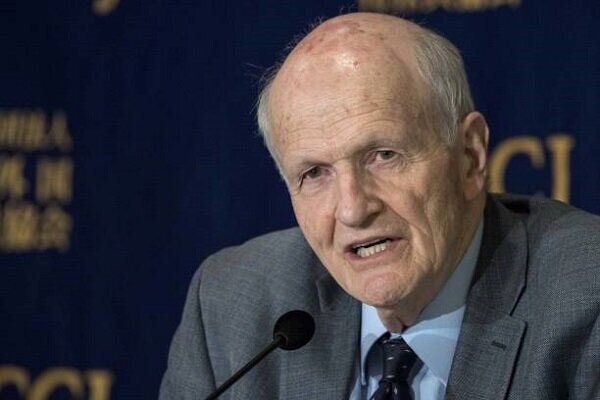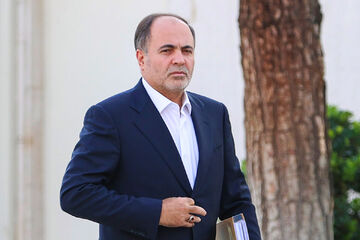TEHRAN(Bazaar) – Professor Frank N. von Hippel, former assistant director for national security in the White House Office of Science and Technology, believes that President Biden wants to avoid completing nuclear negotiations with Iran until after the next US election.
“I think that the long-term alternative to a proliferation of national enrichment plants is multinational plants managed jointly by all countries with nuclear power plants in a region,” Professor Frank N. von Hippel told Bazaar News Agency.
Following is the text of the Bazaar interview with Professor Frank N. von Hippel.
Q: In the midst of the Gaza war, Antony Blinken, the US Secretary of State announced that withdrawing from the JCPOA was a mistake because it had resolved one of the security issues with Iran. What is your assessment of his words at this time?
A: I agree that Trump withdrawing the US from the JCPOA was a terrible mistake.
Q: Josep Burrell, the head of foreign policy of the European Union, also announced after the Gaza war, said “The time for negotiations to revive the JCPOA is coming to an end and it is important to resume these negotiations. I understand how important these negotiations are for the region, especially Saudi Arabia.” How do you evaluate his words? Does it mean an attempt to immediately resume negotiations?
A: I would hope so, but I think that President Biden would like to avoid completion of the negotiations until after the next US election. Iran is not popular in the US. Its support of Hamas and Russia and its suppression of women’s rights are now additional reason and many would accuse Biden of negotiating with the devil – just as many in Iran describe the US as the “Great Satan”.
Q: Burrell also said, “Although the countries of the region and Saudi Arabia are not directly at the negotiating table, their concerns will be taken into consideration.” It seems that this is a new issue. Before this, the Arab countries demanded direct participation in the negotiations, which was met with opposition. Has something new happened? Doesn't this make the negotiation process more difficult?
A: I don’t know what Burrell is referring to, but, as you know, I think that the long-term alternative to a proliferation of national enrichment plants is multinational plants managed jointly by all countries with nuclear power plants in a region.
Q: After the Gaza war, the spokesperson of the Iranian Foreign Ministry also said “The subject of the negotiations is open within the defined framework and within the framework of the Sultan of Oman's initiative. Naturally, the situation and issue of Palestine, which has displaced regional and international priorities, can overshadow some issues or create priority and delay.” What is your assessment of these words?
A: I have read the 31 October 2023 statement of the Foreign Minister of Oman. I agree with his assessment of the situation. I don’t think, however, that, after their war crimes, the current leadership of Hamas or the Netanyahu government are credible negotiators, however.
Q: According to the words of the officials of both sides of the JCPOA, is it possible to start negotiations in the next few months?
A: In principle, yes, if the Europeans take the lead. I don’t think the Biden Administration can do much until Biden is (Inshallah) reelected.















نظر شما